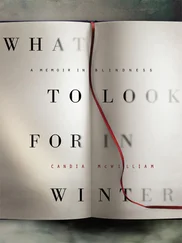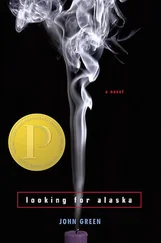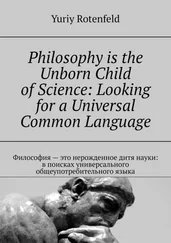Edeet Ravel - Look for Me
Здесь есть возможность читать онлайн «Edeet Ravel - Look for Me» весь текст электронной книги совершенно бесплатно (целиком полную версию без сокращений). В некоторых случаях можно слушать аудио, скачать через торрент в формате fb2 и присутствует краткое содержание. Жанр: Старинная литература, на английском языке. Описание произведения, (предисловие) а так же отзывы посетителей доступны на портале библиотеки ЛибКат.
- Название:Look for Me
- Автор:
- Жанр:
- Год:неизвестен
- ISBN:нет данных
- Рейтинг книги:5 / 5. Голосов: 1
-
Избранное:Добавить в избранное
- Отзывы:
-
Ваша оценка:
- 100
- 1
- 2
- 3
- 4
- 5
Look for Me: краткое содержание, описание и аннотация
Предлагаем к чтению аннотацию, описание, краткое содержание или предисловие (зависит от того, что написал сам автор книги «Look for Me»). Если вы не нашли необходимую информацию о книге — напишите в комментариях, мы постараемся отыскать её.
Look for Me — читать онлайн бесплатно полную книгу (весь текст) целиком
Ниже представлен текст книги, разбитый по страницам. Система сохранения места последней прочитанной страницы, позволяет с удобством читать онлайн бесплатно книгу «Look for Me», без необходимости каждый раз заново искать на чём Вы остановились. Поставьте закладку, и сможете в любой момент перейти на страницу, на которой закончили чтение.
Интервал:
Закладка:
“Naomi is fine.”
“Yes. Wel .”
“I’l see you tomorrow. You’l know me by my red hat.”
“Your long-lost hat.”
“My final y found hat.”
“We’re talking about hats.”
“Yes.”
“The characters in the books I write never talk about hats. I think I’l try it out tonight. This conversation is inspiring me.”
“You write books?”
I paused. Then I said, “Not real books, just junk romance. I have to go now,” I said.
“You al right?”
“I have to go,” I said, and hung up. I sat at the kitchen counter and stared at the fridge, which was covered with snapshots of Daniel. Daniel sit ing on a chair with our cat in his lap, Daniel and me at a party, Daniel with his friend Alex in Venice. I had not meant to tel Ra about the romance books. This was the rst time anyone other than my father knew something about me that Daniel did not know. In my interviews I always updated Daniel: I talked about al my adventures and misadventures, and about the people around me. That way, if Daniel read or heard the interview, he’d have some idea of what my life was like. But I didn’t want to discuss my romance novels in those interviews, so I didn’t tel anyone else about them either. Only my father knew. I had to tel him, because he couldn’t gure out how I was managing financial y, and he was worried. My father was my biggest fan. He bought al my books and he said they were a blast.
I stared at the snapshots and the pain of Daniel’s absence stirred inside me. Usual y the pain was like a lit le boy sit ing on a lit le chair in a darkened corner—like Lit le Jack Horner: it was there, but it stayed in its assigned place, quietly recalcitrant. At other times, without warning, the pain rose and expanded and threatened to suf ocate me.
At those times I longed for the drug Vronsky had prescribed when I broke my ankle. I was on an excursion to see new set lement outposts and I found myself near Be’er Shalom, an old set lement deep inside Palestine. Over the years I’d taken a few good photographs of set lers, but never of set lements. I managed that day to sneak away from the group without the army noticing, and I made my way toward Be’er Shalom. I knew it would be fenced in, but I was hoping to take some photographs of the fence, its guards, and of the set lement itself, viewed through the wires. Maybe the guards would even let me inside.
Before I reached the fence I came across a cabin someone had built just outside Be’er Shalom, a cabin surrounded by newly planted trees.
Whoever had built the cabin had also constructed an elaborate doghouse next to it. Most likely an eccentric lived here, someone who refused to hide behind a fence, who saw himself perhaps as some sort of prophet.
I went up to the door and knocked. There was no answer. I tried the handle and the door slid open. The room inside was very stil , its contents petri ed under a thin layer of dust and cobwebs; no one had lived here for some time. And yet nothing had been disturbed or moved, as if the owner were expected back: the e ect was spooky, but also intriguing. In one corner a plank of wood set on two cement blocks served as a makeshift bookshelf: it held about thirty books, al in English and al on the same subject, more or less: rearms, war technology, nuclear terrorism.
In the center of the room stood a table covered with black oilcloth. Newspaper clippings, also in English, were spread out on the table.
Seemingly random words had been circled and there were indecipherable numbers and symbols in the margins. The clippings were held down by a bot le of transparent glue and a paperweight that appeared to be the skul of a smal animal. There was a mat ress on the oor, and next to it sticks of incense, an oversized book on the Kabbalah, and a pamphlet of poems writ en by children in Theresienstadt. I took a and next to it sticks of incense, an oversized book on the Kabbalah, and a pamphlet of poems writ en by children in Theresienstadt. I took a photograph of the lit le animal skul , and I was going to take a few more, but I must have been on edge, because when I heard a noise outside the cabin I panicked and ran out.
I was so ustered I didn’t look where I was going, and I tripped on a metal rod protruding from a large uprooted sign that was lying on the ground. Two soldiers were hovering over me, half-smiling. “Seen a ghost?” they asked. I looked at the sign; it was trilingual, and it said, in English, DANGER / FIRING RANGE / ENTRANCE FORBIDDEN / ENTRY REQUIRES PRIOR APPROVAL AND COORDINATION WITH THE ARMY CENTRAL COMMAND COORDINATOR / 02-5305252 / CENTER
OPERATES 24 HOURS A DAY / EXCLUDING SATURDAYS AND HOLIDAYS. Its two metal supports had been set in large cement blocks, which now hung helplessly from the rods like Frankenstein’s feet.
“Everyone was worried about you,” one of the soldiers said. “Next time don’t leave the group without permission. We have enough to think about.”
“Sorry,” I said. I took a photograph of the sign from where I was sit ing. Then I discovered that I couldn’t get up, and I had to be carried piggyback to the bus. “Who lives in that cabin?” I asked the soldier who was carrying me. “Lived,” he said. “Some guy, he was kil ed a couple of months ago. Are you single?” “I’m in too much pain to remember right now,” I said.
Vronsky was on duty at the hospital when Odelia, who had also been at the outpost-tracking activity, brought me to the emergency ward. I used her shoulder as a crutch; the pain was excruciating, but I was stoic and didn’t let on. As a result, the nurses didn’t think I had more than a sprain, and I had to wait several hours for a doctor to see me.
The doctor was Vronsky. While he was examining me he noticed the yer in my hand. It was a glossy fund-raising yer from Be’er Shalom asking Americans to help them ful l God’s promise by sending tax-deductible donations. I’d found it on the rented bus. “What’s that?”
Vronsky asked. I told him about the il egal outposts and the deserted house of the dead prophet. He seemed interested, though he didn’t say much. At midnight he sent me home with a cast and a bot le of painkil ers. They were stronger than was usual because Vronsky felt bad that I’d waited so long, and also because by the time he saw me I was no longer stoic, and I told him I’d pass out if I didn’t get something strong soon.
I became madly addicted to the pil s and when they were nished I begged Vronsky for more. At rst he yielded, but after my cast came o he refused to renew the prescription. I was sorry then that my anklebone, which had apparently broken in an unusual manner, healed inexplicably within two weeks. Vronsky discovered by chance that the fracture had healed: the cast was causing me al sorts of problems and had to be removed and replaced. As it turned out, though, the cast wasn’t replaced, because Vronsky took another X-ray and found, to his astonishment, that I was cured. “Remarkable,” he said. “Most unusual. Two weeks—I’ve never come across such a case before.”
“I stil need those pil s for pain,” I said hopeful y, but Vronsky assured me I wouldn’t be experiencing any further discomfort. My body never forgot the pleasure of the drug, which had spread inside me like a gentle breeze on a lazy summer day, a day l ed with cyclamens sweetly trembling under blue skies. Every now and then a deep craving for the remembered sensation would take hold of me, and one night I was so desperate I tried to find the drug on the street, but no one had heard of it.
Now the familiar desire came back. I needed to narrow the pain of my longing for Daniel, send it back to its corner, but it was stubborn and didn’t want to budge. I decided to go out for dinner with Volvo and then walk with him by the sea. The sea at dusk was my best bet.
Читать дальшеИнтервал:
Закладка:
Похожие книги на «Look for Me»
Представляем Вашему вниманию похожие книги на «Look for Me» списком для выбора. Мы отобрали схожую по названию и смыслу литературу в надежде предоставить читателям больше вариантов отыскать новые, интересные, ещё непрочитанные произведения.
Обсуждение, отзывы о книге «Look for Me» и просто собственные мнения читателей. Оставьте ваши комментарии, напишите, что Вы думаете о произведении, его смысле или главных героях. Укажите что конкретно понравилось, а что нет, и почему Вы так считаете.












